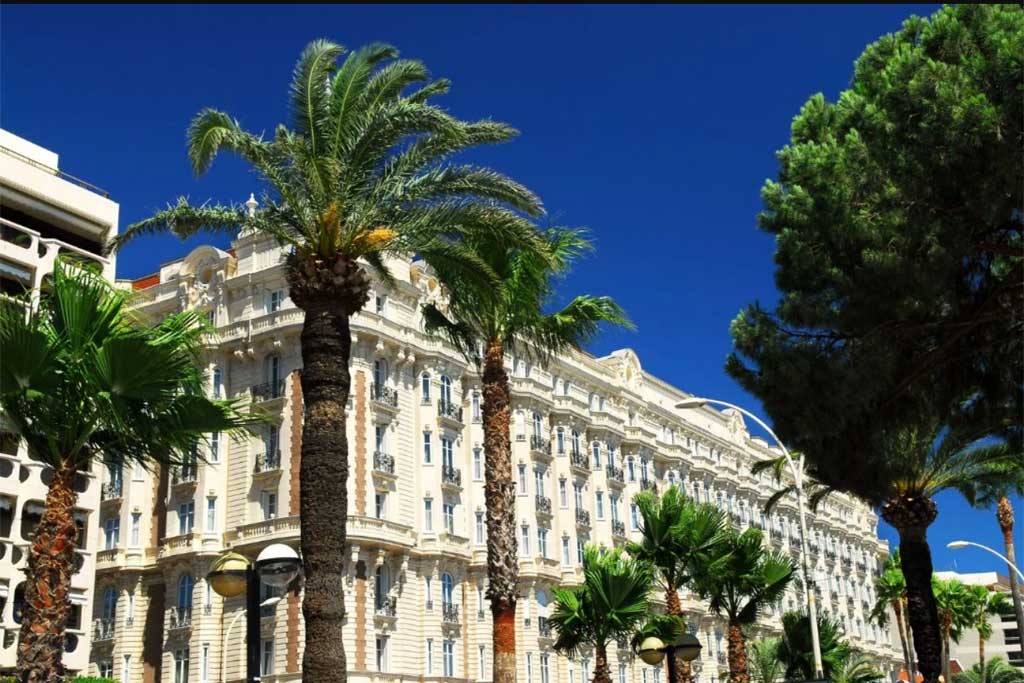Cannes, a glamour city on the French Riviera, has a rich and varied history that has contributed to its status as a premier destination for tourists and celebrities. Here is an overview of the key historical milestones of Cannes.
Ancient and Medieval Period
- Pre-Roman and Roman Era: The area around Cannes was inhabited since prehistoric times, with evidence of settlements dating back to the 2nd century BC. It became a Roman outpost named "Canois Castrum."
- Middle Ages: During the medieval period, the Lerins Islands (Îles de Lérins) off the coast of Cannes were significant. The Abbey of Lérins was established on Île Saint-Honorat around the 5th century, becoming an influential religious center.
# Central Cannes Apartment - Book now! #
Renaissance to 18th Century
- 14th Century: The region saw conflict and control struggles, particularly involving the Kingdom of France and the House of Anjou.
- 1530: Cannes was fortified to protect against pirate invasions, and the Suquet district became a fortified stronghold.
- 18th Century: Cannes remained a small fishing village, relatively untouched by the larger political conflicts of the time.
19th Century: Birth of a Resort Town
- 1834: The arrival of the English aristocrat Lord Brougham marked a turning point for Cannes. After being detained due to a cholera outbreak, he decided to stay and was captivated by the area's beauty. He built a villa and promoted Cannes among his wealthy friends.
- Late 19th Century: Following Brougham's influence, Cannes transformed into a fashionable resort town for European aristocracy, with luxury villas and hotels springing up along the coastline.
20th Century: The Cannes Film Festival and Modern Development
- 1920s-1930s: Cannes continued to grow as a luxury destination. The construction of the Boulevard de la Croisette and the Carlton Hotel enhanced its appeal.
- 1946: The first Cannes Film Festival was held, originally conceived in 1939 but delayed due to World War II. This event quickly established Cannes as a global center for the film industry and a glamorous destination for celebrities.
- Post-War Period: Cannes underwent significant modernization, with the expansion of its port, the construction of the Palais des Festivals et des Congrès, and the development of modern infrastructure to support its burgeoning tourism industry.
# Central Cannes Apartment 2-room by Palais des Festivals & Beach #
Contemporary Era
- Late 20th to Early 21st Century: Cannes solidified its status as a premier global destination, hosting not only the annual film festival but also numerous other international events and conventions. The city has maintained a careful balance between modern development and preserving its historical charm.
Cultural and Architectural Heritage
- Le Suquet: The old town area of Cannes, with narrow winding streets and the 11th-century church of Notre-Dame de l'Espérance, provides a glimpse into the city's medieval past.
- Îles de Lérins: The islands remain a significant historical and natural site with the Abbey of Lérins on Île Saint-Honorat and the Fort Royal on Île Sainte-Marguerite, where the Man in the Iron Mask was imprisoned.
Cannes today is a blend of historical heritage and modern luxury, attracting millions of visitors each year to its stunning beaches, high-end boutiques, unforgettable French cuisine, and renowned cultural events.
